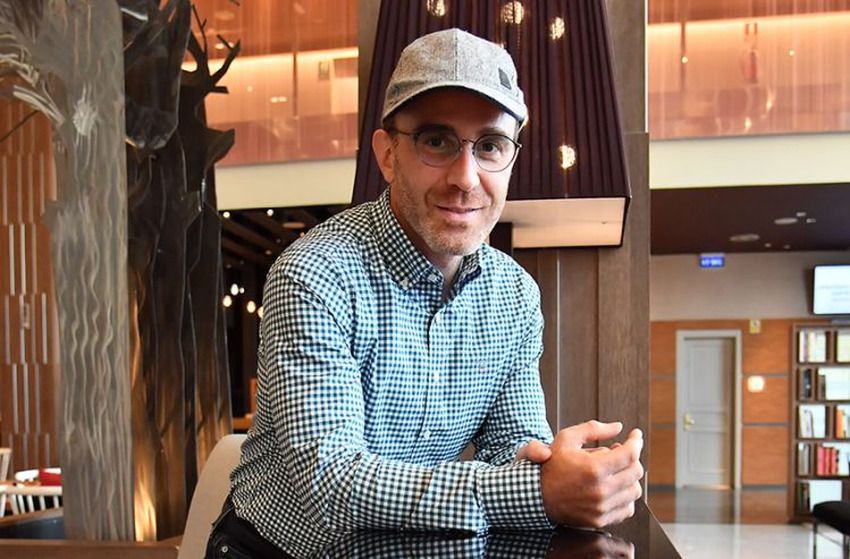Israeli startup Aleph Farms has applied to Swiss food safety regulators for approval to sell its cultivated beef steaks in its first European market: Switzerland, a country outside the European Union (EU).
A spokesperson told AgFunderNews that Aleph had had lengthy conversations with the Swiss Federal Food Safety and Veterinary Office (FSVO) to understand what was required under the country’s novel foods rules before submitting a safety dossier.
“We expect the review and approval process to take somewhere between 12-24 months, but that timeline is highly dependent on Switzerland’s regulatory bodies.”
Aleph and Swiss supermarket chain Migros, an early investor in the company, have “conducted extensive consumer research in Switzerland and navigated the intricacies of the country’s regulatory landscape for novel foods,” said the spokesperson.
“As part of their agreement, the two companies will continue to develop a go-to-market strategy that involves distribution and commercialization of Aleph Cuts through fine dining food service channels in Switzerland.”
However, the first markets it will enter will be Singapore and Israel, said the spokesperson: “We hope to receive regulatory approvals in Singapore and Israel very soon, which will allow us later this year to launch Aleph Cuts in limited quantities and offer exclusive tasting experiences curated with select partners.”
GFI Europe: ‘Europe is sending mixed messages’
Seth Roberts is policy manager at the Good Food Institute (GFI) Europe, a nonprofit that promotes so-called ‘alternative’ proteins including cultivated meat. While the GFI welcomed Aleph’s “enormously exciting” news, it is “striking that Europe’s first-ever cultivated meat application has arrived in Switzerland rather than Brussels,” he said.
As far as the GFI is aware, the European Food Safety Authority (EFSA) has yet to receive a dossier from a cultivated meat company, he added.
“With Italy trying to ban cultivated meat while countries like the Netherlands invest, Europe is sending mixed messages to companies who need certainty to be able to deliver on their potential. The EU must develop a coherent strategy to support the sustainable protein sector and ensure regulatory processes are clear in order to reap the benefits of cultivated meat.”
In the EU, cultivated meat is subject to the Novel Food Regulation, a lengthy and sometimes tortuous process that foodtech startups argue is something of a black box given that individual companies can’t typically talk to officials in advance of a submission to understand exactly what they are looking for.
Meatable CEO: ‘With all the bureaucracy in the European Union, things don’t get done’
In a recent interview with AgFunderNews, the CEO of Dutch cultivated meat startup Meatable said: “We’re focusing our first launch in Singapore and the second launch in the US, which for me as a European is sad. But it is what it is.
“You would think, as the whole climate change agenda in Europe is much bigger [that the regulatory pathway for cultivated meat would be easier], but you just see that with all the bureaucracy in the European Union, things don’t get done.”
According to Roberts at the GFI: “The Swiss FSVO provides a template for application, which helps companies to navigate the process and makes it straightforward for applicants to know what is expected of them.
“This is an example of the type of resource that EFSA could develop to provide clarity and transparency for producers and support them in coming to market in the EU.”
The EU regulatory framework: Cultivated meat is subject to the Novel Food Regulation, whereby applicants must first submit a safety dossier to the European Food Safety Authority (EFSA), which can take a minimum of nine months assuming EFSA has no questions, which is very unlikely given no pre-submission dialogue is allowed. Each time EFSA has a question, the clock stops.
After that, the European Commission’s Standing Committee on Plants, Animals, Food and Feed (PAFF committee) must approve the application.

Asset-light approach
Founded in 2017 and armed with $120 million in funding from backers including L Catterton and DisruptAD, Aleph Farms is one of the best-funded cultivated meat startups.
It is taking an “asset-light” approach to scaling up production through a series of manufacturing deals it has struck in Israel and Singapore.
The startup should now be able to start production in Singapore in 2025, according to CEO Didier Toubia, who recently signed a memo of understanding (MOU) with ESCO Aster, the contract manufacturer working with Eat Just to make cultivated chicken in the city-state.
Aleph Farms has also acquired a facility in Modi’in, Israel, and related assets from biotech company VBL Therapeutics, enabling it to produce larger quantities of meat there by late 2024.
Aleph is scouting for sites in the Northeast region of the US for a larger scale facility and believes it can achieve cost parity with premium beef by 2028.
In the meantime, it plans a small-scale launch of its ‘Aleph Cuts’ thin cultivated beef steaks at restaurants in Israel and Singapore later this year using product from its pilot facility in Rehovot, Israel.

Further reading:
🎥 Meatable CEO: ‘We believe we have the fastest process in the field to make cultivated meat’




